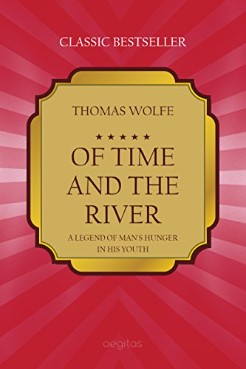. . . of wandering for ever and the earth again . . . of seed-time, bloom, and the mellow-dropping harvest. And of the big flowers, the rich flowers, the strange unknown flowers.
Where shall the weary rest? When shall the lonely of heart come home? What doors are open for the wanderer? And which of us shall find his father, know his face, and in what place, and in what time, and in what land? Where? Where the weary of heart can abide for ever, where the weary of wandering can find peace, where the tumult, the fever, and the fret shall be for ever stilled.
Who owns the earth? Did we want the earth that we should wander on it? Did we need the earth that we were never still upon it? Whoever needs the earth shall have the earth: he shall be still upon it, he shall rest within a little place, he shall dwell in one small room for ever.
Did he feel the need of a thousand tongues that he sought thus through the moil and horror of a thousand furious streets? He shall need a tongue no longer, he shall need no tongue for silence and the earth: he shall speak no word through the rooted lips, the snake's cold eye will peer for him through sockets of the brain, there will be no cry out of the heart where wells the vine.
The tarantula is crawling through the rotted oak, the adder lisps against the breast, cups fall: but the earth will endure for ever. The flower of love is living in the wilderness, and the elm-root threads the bones of buried lovers.
The dead tongue withers and the dead heart rots, blind mouths crawl tunnels through the buried flesh, but the earth will endure for ever; hair grows like April on the buried breast and from the sockets of the brain the death flowers grow and will not perish.
O flower of love whose strong lips drink us downward into death, in all things far and fleeting, enchantress of our twenty thousand days, the brain will madden and the heart be twisted, broken by her kiss, but glory, glory, glory, she remains: Immortal love, alone and aching in the wilderness, we cried to you: You were not absent from our loneliness.
I
About fifteen years ago, at the end of the second decade of this century, four people were standing together on the platform of the railway station of a town in the hills of western Catawba. This little station, really just a suburban adjunct of the larger town which, behind the concealing barrier of a rising ground, swept away a mile or two to the west and north, had become in recent years the popular point of arrival and departure for travellers to and from the cities of the east, and now, in fact, accommodated a much larger traffic than did the central station of the town, which was situated two miles westward around the powerful bend of the rails. For this reason a considerable number of people were now assembled here, and from their words and gestures, a quietly suppressed excitement that somehow seemed to infuse the drowsy mid-October afternoon with an electric vitality, it was possible to feel the thrill and menace of the coming train.
An observer would have felt in the complexion of this gathering a somewhat mixed quality—a quality that was at once strange and familiar, alien and native, cosmopolitan and provincial. It was not the single native quality of the usual crowd that one saw on the station platforms of the typical Catawba town as the trains passed through. This crowd was more mixed and varied, and it had a strong colouring of worldly smartness, the element of fashionable sophistication that one sometimes finds in a place where a native and alien population have come together. And such an inference was here warranted: the town of Altamont a mile or so away was a well-known resort and the mixed gathering on the station platform was fairly representative of its population. But all of these people, both strange and native, had been drawn here by a common experience, an event which has always been of first interest in the lives of all Americans. This event is the coming of the train.
